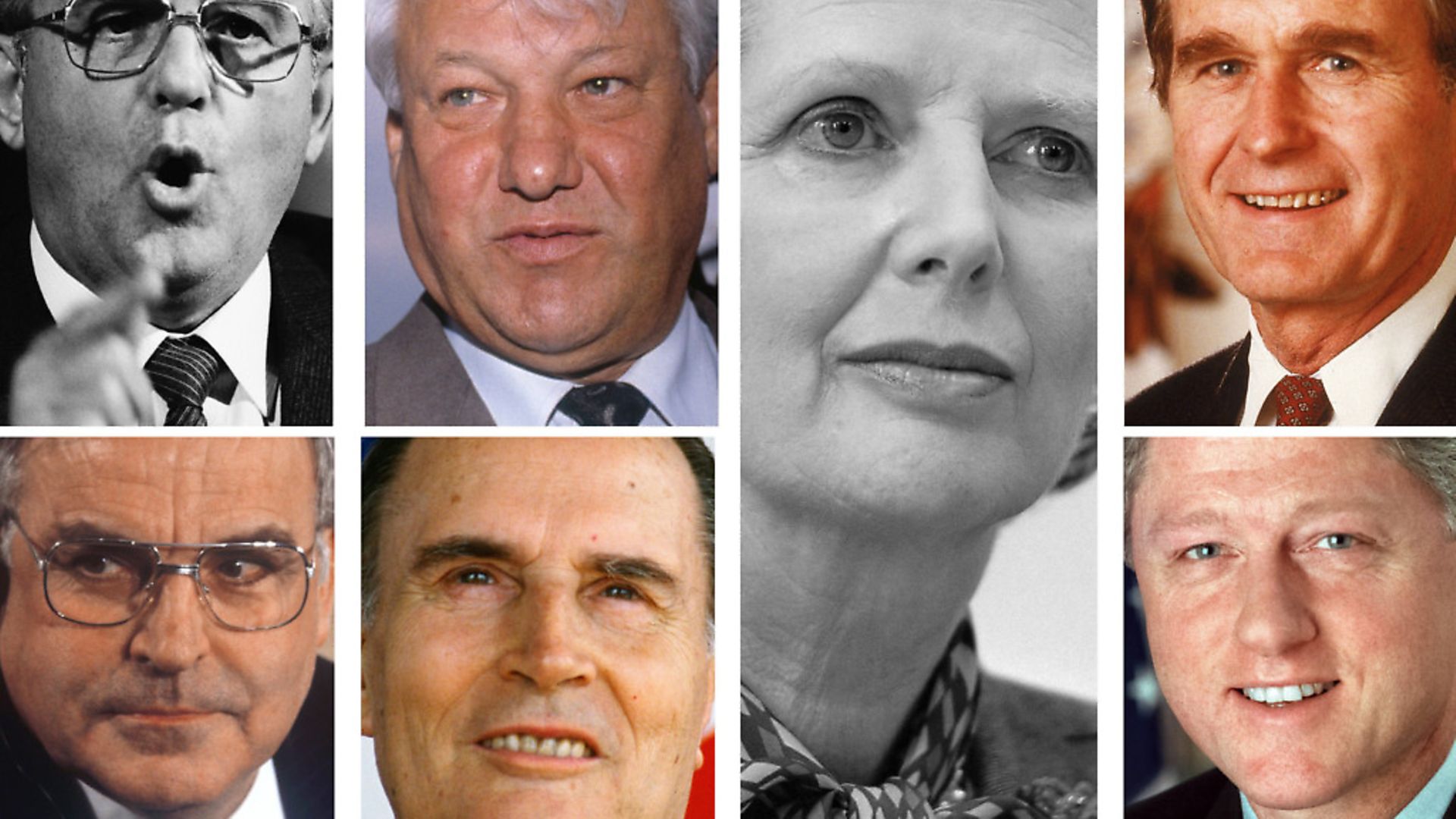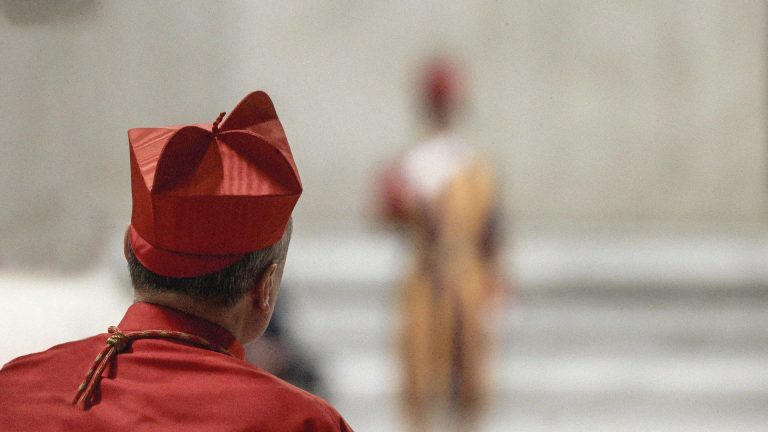
The global titans and statesmen of yesteryear have gone. And we may never see their like again
I recently read Michael Zantovsky’s excellent biography of Vaclav Havel, the great playwright, dissident and first post-Cold War Czechoslovak president. The book’s cast of characters struck me over the head like a 517-page weight. Lech Walesa, Mikhail Gorbachev and Boris Yeltsin. The first President Bush and Bill Clinton. Helmut Kohl, Francois Mitterand and Margaret Thatcher.
These leaders were all flawed in a multitude of ways. But they were titans too. Big characters with immense ideas dealing with huge issues. Between them they guided the world through the end of the Cold War and its dangerous aftermath with remarkably few shots being fired.
The contrast with today is as obvious as it is stark. We now have a thin-skinned, half-witted liar in the White House. The Kremlin is occupied by a vindictive minor KGB man, who the US Treasury – and many others beside – considers corrupt. Most current European leaders struggle to keep up with events, let alone shape them. And Britain is led by a bunch of mediocrities bent on turning the petty, pub bore prejudices of Nigel Farage into policy.
The simplest explanation for the current absence of illustrious leaders is that it is all part of the natural cycle. There is no seamless production line of all-time greats. This happens in all walks of life. There was a gap between Maradona and Messi. London did not call The Clash into being the moment The Beatles broke up. Maybe the presidents and prime ministers destined to clear up the world’s current mess are about to emerge. Hello, Alexei Navalny and Elizabeth Warren – is it you we’re looking for?
We may be searching in vain because the advent of the internet, social media and 24 hour rolling news channels has changed matters irrevocably. By the early 1990s, leaders’ visibility had not drastically increased since the era when Churchill could disappear for days on end without anyone really noticing. This allowed them time to think.
The combination of more time and less exposure allowed previous generations of political leaders to increase the impact of their interventions. It enabled them to develop the mystique upon which charismatic leadership relies. By contrast, anyone who has recently been involved in top line politics will vouch for how the relentless requirement to respond to events now overtakes all else. Today’s leaders are effectively performers in a never-ending reality show. Their every move, word and alleged thought is publicised and pored over to the nth degree. It is hard for anyone to project greatness when we are sick of seeing them and every misstep is magnified out of all proportion.
The appearance of greatness is also closely connected to the scale of the issues being handled. The Cold War hung over the world for over four decades. One false move by either East or West could have led to the planet being annihilated by the nuclear missiles they had pointed at each other and prepared for launch. Operating in this tense environment impelled leaders to focus their minds and rise to the occasion.
It is difficult to remember now how unlikely it seemed it at the time that the Cold War could be ended peacefully. That there was no orgy of bloodshed when the iron curtain fell is a huge tribute to the wisdom of Gorbachev. He was a true believer in the communist system until that point and knew his final actions in power would probably destroy his life’s work. But he still chose to put the rest of humanity first.
We owe much too to the careful handling exhibited by his Western counterparts. Life experience played a major role in their ability to shape the end of the Cold War successfully. Kohl and Mitterand, in particular, had powerful memories from their younger days of the devastation wreaked by the Second World War. They were willing to do everything in their power to avoid anything similar happening again.
No-one would wish for today’s leaders to have their formative experiences amidst the horrors of war. Nor should we pretend that their predecessors were never driven by personal ambition. But the previous generation’s early lives and the stronger culture of public service that prevailed provided crucial balancing factors for them.
Our current leaders are handicapped by the loss of the living memories of far worse times and are complacent about our good fortune as a result. However unconsciously, they have grown up as part of the ‘me’ generation. As Theresa May has amply demonstrated with her hypocrisy over Brexit and in calling a general election, this background impels them to place personal and political advantage over the long-term public interest. Such an approach might, in the narrow sense of acquiring power, be smart politics but it is not a foundation on which history-shaping greatness can be built.
The main contemporary political issue in our part of the world – Brexit – is undoubtedly a big deal. It reflects what is becoming the defining political question of our age – open versus closed. Whilst far from being the only factor, this question was also significant in the last US presidential election and was, perhaps more than on any previous occasion, at the heart of the Macron–Le Pen presidential contest in France.
But the differences between Brexit and the Cold War are in scale and motivating factors. Impactful though it may be, it is not a global clash of grand ideologies about how society should be structured. Instead, it is a big regional issue driven by small thinking. Rather than battles about the best future for mankind, Brexit was fuelled by local peevishness about real and imagined bureaucratic irritations of the straight banana variety. No leader is going to look great when the platform they are performing on is so pathetic.
In this respect, Brexit is perhaps the ultimate expression of the difficulties leaders face in the rolling media era. Is it they who are small or the times and the issues they are dealing with? The constant demand for news means every molehill is turned into a mountain. Whatever other challenges he had to deal with, Lech Walesa was never browbeaten into commenting on where the word ‘Easter’ should feature in a chocolate egg advert.
Great political leadership may have become impossible in our age. That someone with the obvious, monumental gifts of Barack Obama – Muhammad Ali in political form – could not quite achieve greatness in terms of a legacy of achievements, tends to bear this out.
And maybe our reliance on the ‘great man’ theory of leadership is misplaced anyway (we still too often reduce our chances by 50% by sticking to the ‘man’ part of the population). The late 1980s/early 1990s generation of leaders did a masterful job of building the post-Cold War peace. But their predecessors caused the world and cold wars to happen in the first place.
The 1990-ers laid the foundations for globalisation to flourish, bringing unprecedented prosperity to billions around the planet. But they, and their successors, failed to foresee that there would be losers too who would be angry about it. Some of these people have now become easy prey for populist 1930s throwbacks. The Trumps and Putins of this world are a salutary reminder of what can happen when political systems overly in thrall to all-powerful leaders malfunction and end up in the wrong hands.
What we really need to do here is ditch the great leader fixation altogether. Let’s accept that it is overrated and unachievable in the internet and social media era. No mortal can maintain an aura of greatness when their every move, tic and word is under constant, microscopic analysis. Nor can any one individual, however capable and charismatic, stay on top of the speed and scale of developments in the world today, let alone seek to shape them by themselves.
Instead, we should embrace the possibilities that modern technology offers, become more politically active ourselves and encourage others to do so too. The internet and social media are not just tools for expressing fury at the other side’s malevolence or incompetence. Rather, we now have in our hands an unprecedented apparatus for sharing ideas and forming new and ever-evolving coalitions to press for their implementation – constantly and not merely at election time.
Obama’s true long-term legacy may be that he was a bridge between the smart, charismatic leaders of the past and the modern era. The movement he built to take him to the Presidency in 2008 combined old-school inspirational leader politics with mass engagement through modern technology. Emmanuel Macron in France has taken it a step further by building a movement from scratch to take him to the Presidency within a year.
The next stage could complete the shift from top-down to bottom-up politics. The politicians of the very near future may become little more than guides and managerial aggregators of our preferences. The day when we are all leaders is coming closer. And, if we get it right, that may not be a bad thing.
Paul Knott is a former British diplomat and the author of The Accidental Diplomat; he lives in Switzerland









